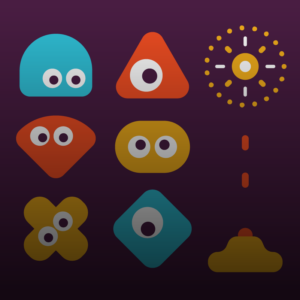Gamification is a common buzzword in HR. However, what actually is it —and more importantly— how can it help your recruitment process?
What is gamification?
Gamification is more than just adding a game into your application process. These scientifically-backed games are an opportunity to truly assess a candidate’s behaviour, abilities and job performance.
According to our Chief Scientific Officer, Dr Boris Altemeyer:
“Gamification is great if it’s applied in the right way. But it should never come first. First of all, we need to define what we actually want to assess and then the gamification on top provides us with a new tool to generate better, clearer and truer data.”
Gamification is about understanding how people’s brains interpret information. For instance, assessing how well a person multitasks and prioritises. For years the ‘in-tray exercise’ has been a popular method of judging this. However, this task can be anxiety-provoking and competent candidates may underperform when they are fully aware that every decision they make will affect their job prospects. With gamification, we can build models that are very similar to daily tasks in a role without directly mimicking them. By engaging the candidates, they relax and forget it is a test situation. Test anxiety is common amongst applicants, and gamification can help combat this problem. We have even received feedback from past candidates surrounding this: “This was a very unique and fun way to assess individuals. It allowed me to relax and was the first time I have ever enjoyed being assessed”. Because a candidate feels more relaxed, HR will get a lot more accurate data on their abilities.
Candidates can’t second guess a game
Some candidates may try to reverse engineer their application. But with gamification, it’s difficult for a candidate to do this. For example, in our new Lens Pro assessment you choose between two options which are equally viable instead of two choices where it’s obvious what the ‘correct answer’ is. This helps an employer really get to know an applicant and the values they stand for. The process becomes about their true abilities, not the persona which they think will get them the job.
Accessibility: more applicants, more talent
The games we have developed can be accessed anytime and anywhere in the world, which widens the talent pool. In the past, applicants who live in remote locations or have mobility issues wouldn’t have been able to physically attend assessment centres. Now they have an equal opportunity to showcase their abilities for a job.
Breaking down cultural barriers
It is also important to take into account the visual content of the games. Using shapes that have pre-existing cultural connotations may put candidates from those backgrounds at a disadvantage. For example, in a line up of shapes, they may choose the one that is perceived as lucky in their culture instead of the correct one. In our games, we use shapes that are universal and have no cultural connotations so everyone has an equal chance.
More data in less time
These games can also collect a large amount of data around how people make decisions and tackle problems in a short space of time. This means the application process can be much shorter. HR will be able to consider talent which may have otherwise dropped out of a longer application process, whilst using that data to enhance their decision making.
The future of recruitment?
Gamification is a more engaging, accessible and less pressured method of collecting accurate data to get a fuller picture on a candidate. With all these benefits, why wouldn’t you use it in a recruitment process? In 2018, the global gamification market was valued at $5.5 billion. In the future, gamification may be a common part of most recruitment processes. On the surface, it may look simple but it is an expert skill. If you are interested in gamification, get in touch as we have experts who have been researching, testing and applying it extensively for years.
Book a demo with us to play our extensive library of scientifically-backed games or find out how you can use gamification in your next recruitment process.


